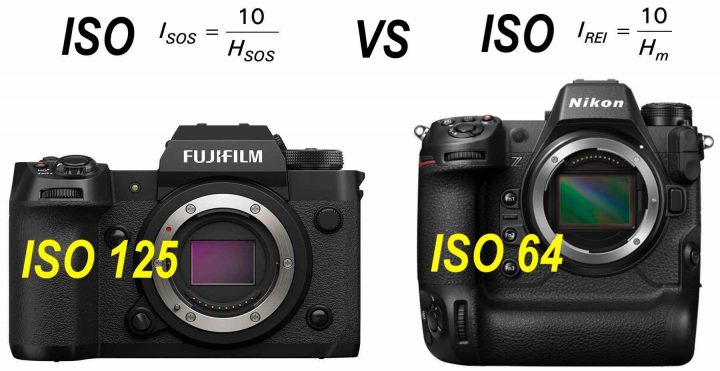Don’t Worry: Why Fujifilm X-H2 with ISO 125 Can’t Be Compared with ISO 125 on Sony, Canon and Nikon

When I shared the rumor of the Fujifilm X-H2 having base ISO125, there were complaints of people saying that other brands offer base ISO100 or even ISO64.
But maybe we should not moan (for now), and I will try to explain why.
CIPA, the technical association of the Japanese camera industry, introduced in 2006 two new measures of the sensitivity of a digital camera, recommended for use instead of the ISO speed rating. They are standard output sensitivity (SOS) and recommended exposure index (REI).
So two different standards: ISO SOS and ISO REI.
Companies like Canon, Sony and Nikon use REI standard, whereas companies like Fujifilm, Pentax and Olympus use SOS standard.
ISO SOS is considered more objective. ISO REI gives more “freedom” to the camera manufacturer (hence it is considered less objective).
Standard output sensitivity (SOS) is an objective measure defined in essentially the same fashion as ISO speed (for one of the two bases of ISO speed), but which normally will have a value about 0.71 of the ISO speed.
Recommended exposure index (REI) is the value the camera manufacturer recommends be used as the exposure index setting. It is not specified to be determined in any specific objective way, but may be chosen empirically to give what the manufacturer feels will be the best exposure results for most users in most cases*.
You can go through all the technicalities yourself in the document linked below.
But what it means in short is that you can’t really compare ISO125 on a Fujifilm camera with ISO125 on a Nikon/Canon/Sony camera.
Will ISO125 be more comparable to ISO64 on Nikon as some say in the comments here on FujiRumors?
Well, I don’t know that.
But what I know is that on September 8th at 2PM New York time we will know a lot more about how well ISO125 on the X-H2 performs (starting from the improved low/high ISO performance).
*source – New Measures of the Sensitivity of a Digital Camera – Douglas A. Kerr, P.E. (dougkerr)

